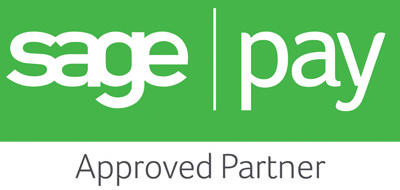When The Concept Of Local Goes Global
When we talk about “local” in this context we're talking about communities. Our local communities have been a lifeline over the pandemic and during times when we have been physically distant, even from those who are geographically close to us, the internet and social tools like WhatsApp have filled a big gap, moving the concept of community from real life into the virtual world.Interestingly, this transition hasn't made these online communities feel any less real than if they were communities we participated in “in the flesh” - they're fulfilling the same purpose for us as social creatures with a need for connection.
As working from home became the norm, many companies used social media and video chat technology to recreate the office atmosphere at home. While water-cooler chat may be seen as gossip, it's these informal interactions that often turn out to spark a solution to a problem or a new idea that transforms your business so it's no wonder that the value of these quasi-social interactions was recognised.
At the same time, online work related technologies like Slack and LinkedIn were becoming hosts for new communities based not just on physical location, or similar industries, but on similar roles and personalities. We were all looking for new ways of doing things and that meant that interacting and building relationships with our opposite numbers in different industries became a really bountiful way of learning and feeling connected.
This was already happening, to some extent, with social media communities and people using collaborative tools to create niche communities, but the pandemic meant that the growth that might have occurred organically over the period of five to six years actually got condensed into a matter of months. It's a good thing it did, too, because being involved in these emerging communities was energising and exciting at a time when the only other excitement we got was a nerve-wracking trip to the supermarket or another family Zoom quiz.
This boom in online community growth meant that the physical distance between people didn't matter – many of us were working flexible hours to adapt to childcare commitments so suddenly, taking part in a video call at night wasn't totally out of the question – communities which had once been very local immediately became global and people shared new ways of working in hours that might otherwise have taken weeks to filter throughout the business world.
For companies that provide online services or who operate globally, participation in these communities has a business benefit too. If we think about our local business community, we'd always choose a friend's business over that of a stranger if we needed a product or service they provided and the same goes for global operations. We're much more likely to deal with someone we know and trust than a completely unknown quantity. What starts out as a way to create mutually beneficial interpersonal relationships can become a way to get sales from places around the world we could have only dreamed of in the past. The word-of-mouth phenomenon also applies here.
Communities like this can also show us how we could grow our own communities for the purpose of marketing and for encouraging repeat, as well as word-of-mouth business. With freely available tools like LinkedIn, Facebook and Google Hangouts as well as tools for effecting interaction in other ways, like Zoom and Slido, it's easy to create a thriving community where people help each other and where you can gain status as an expert or as a problem solver. This can be especially useful in industries where message boards and forums don't exist in any meaningful way – if there's a gap to be filled then why shouldn't you be the one to fill it?
When you're creating a community for your product, service or industry niche look at the platforms and tools that are familiar to that area and stick with what people know. It's also a good idea to reach out to people who are already well known and respected among your customers to be part of your community – after all we all want to hang out with the cool people! Building a community requires time and energy, but it can be a very rewarding experience as well as good way of building long-range sales and customer loyalty.
